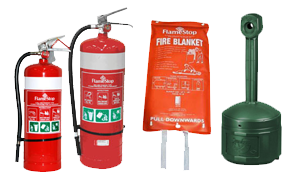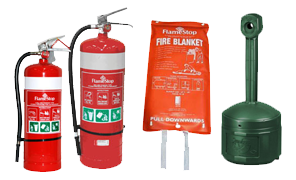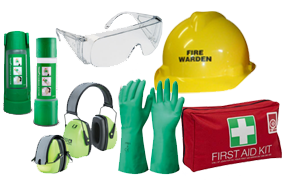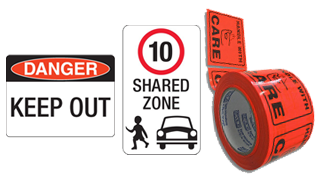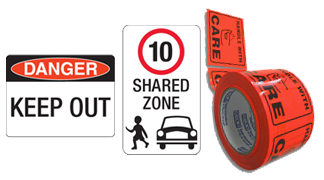It is estimated that up to 30% of all fatal crashes on roads in Australia are caused by driver fatigue. Shift workers and heavy vehicle drivers are at greatest risk of being involved in a fatigue-related accident.
The following article will discuss a number of management factors for fatigue in work-related driving. Incorporating a thorough road safety plan into a company's safety policy can decrease liability and also helps to further ensure driver safety. Among other factors working or driving for extended periods of time can cause fatigue. Organisations must be aware of the workloads placed on professional drivers, to ensure they are not placed under excess risk while driving.
To help manage the work factors that lead to fatigue, managers should:
-
Monitor working hours and individual workloads to minimise accumulated fatigue.
-
Ensure driver compliance with company policy for sleep and substance regulation.
-
Encourage drivers to:
-
Plan ahead: Driver's must be aware of their schedule, and ensure they are receiving correct break periods and are not being not over-worked.
-
Schedule regular rest breaks for periods of extended driving. Book accommodation when necessary.
Understanding the factors that affect fatigue will improve drivers’ performance and help a company to create and implement an effective Driver Safety policy.
Sleep
The duration of one’s nightly sleep affects alertness at work and directly impacts performance. A minimum of seven continuous hours of sleep is required each night for an individual to function sufficiently while driving. Failure to meet this requirement will speed up the effects of fatigue, impacting performance and increasing likelihood of an accident.
Quality of sleep is just as important as the length of sleep, however. There are a number of ways to improve sleep quality, including:
-
Optimise temperature conditions: Maintain room temperature between 18 and 24 degrees Celsius.
-
Reduce light exposure: The use of heavy curtains or blinds will reduce the amount of light in the bedroom. If this is impossible, the use of a sleep mask is also effective.
-
Reduce external noises: The use of earplugs or other noise-cutting methods will reduce external noise and improve quality of sleep.
A company must educate their drivers and employees on the importance of sleep quality and duration. Where possible, a company should aim to provide adequate sleeping conditions and rest-periods during long drives.


Hydration
Dehydration increases fatigue as it causes the body to conserve what water remains in the system by reducing energy. Water is essential to maintaining bodily hydration levels and increasing energy and alertness. Generally, between 2 to 3 litres of water a day is reasonable, but this can change depending on individual body types, professions and their level of daily activity. Drinking water should be available to professional driver’s, as well as other hydrating liquids that help the body maintain important electrolytes. Company policy should indicate the importance of regular consumption of hydrating fluids wherever possible to guarantee all employees stay alert and energised.
Caffeine
Caffeine is a known stimulant that is found in many common drinks. Caffeine is beneficial for helping drivers stay awake and alert for longer periods of time. However, it is important to consume caffeine in moderation. Excess caffeine can cause anxiety, dizziness and an inability to fall asleep. These symptoms will impact driving ability and increase river fatigue.
To maximise caffeine’s effectiveness, it is recommended to:
-
Avoid caffeinated drinks first thing after waking up. The body is naturally waking up at this time, so caffeine is unnecessary. Consuming it can cause further fatigue.
-
Unless the body is feeling actively tired, do not consume caffeine. This is common practice, as consumption of caffeine can become a habit when practiced regularly. Over-consumption of caffeine can lead to increased tolerance, reducing the effect over time.
-
Avoid caffeine six hours prior to intended sleep time (six hours is the half life of caffeine). As caffeine is a stimulant, consuming it before sleeping is likely to affect quality of sleep, and increase fatigue the following day.


Food
Foods that are high in fat or sugar content decrease the body's alertness by impacting certain chemicals in the body.
Drivers should be directed to avoid the following foods, especially if they are already tired:
-
Fatty meats.
-
Processes foods.
-
Sweet pastries or cakes.
-
Full-fat dairy products.
-
Potato or corn chips.
-
Pizza or other greasy, fatty food
-
All ‘junk food’.
Low-fat, high-protein foods are good alternatives, and can help to keep drivers alert. Examples of low-fat alternatives are:
-
Fruits, such as oranges and pineapples.
-
High protein food and protein bars.
-
Lean meats
-
Whole grain sandwiches.
-
High cocoa chocolate.
-
Nuts and seeds.
Alcohol and other substances
Alcohol and all drug substances must be prohibited in the 24 hour period prior to work-related driving. Not only does alcohol impair response times, it also affects a person’s natural sleep patterns and inhibits certain phases of sleep. Consumption of these substances can be monitored using breathalyzers and other measures. A company must create and maintain a strict alcohol and drug policy.
All heavy vehicle operators must comply with National Heavy Vehicle Driver Fatigue laws that apply to fatigue-regulated heavy vehicles. All heavy vehicle operators have a primary duty of care to ensure, so far as is reasonably practicable, that no heavy vehicle is driven by a fatigue- impaired person. A company has a duty of care to ensure that a clear safety policy is in place, and that all employees are well trained so as to uphold this.





